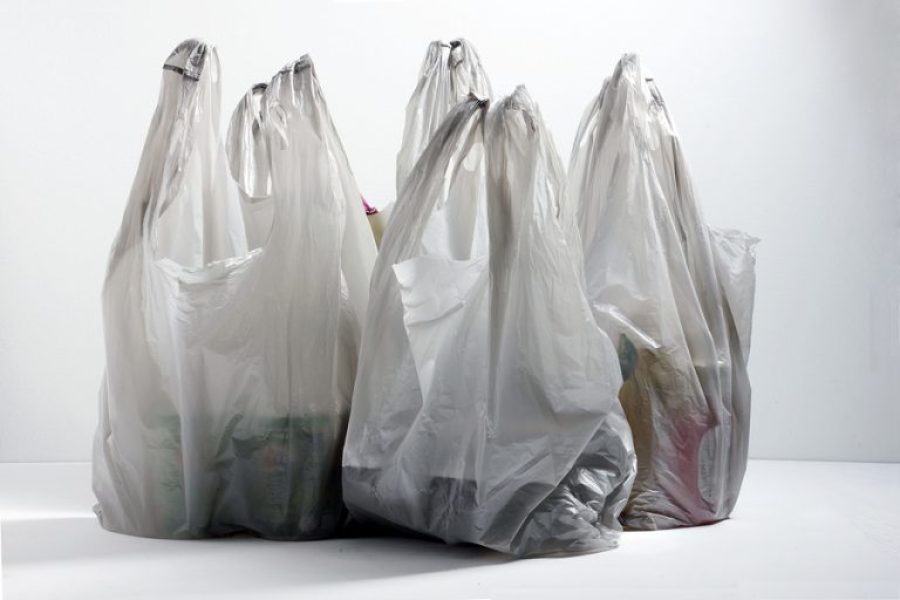The Environmental Protection Bureau (DSPA) said in a statement on Monday that its inspectors did not find any shops violating the government’s plastic carrier bag charge scheme for retail businesses which came into force on Monday.
On the first day of the implementation of the levy scheme, the bureau on Monday dispatched a number of inspectors to check up on the scheme’s implementation across the city, the statement said, adding that the bureau concluded that Monday’s launch was “generally smooth”.
During Monday’s inspection round, the bureau found that promotional materials about the plastic carrier bag levy scheme were being displayed in clearly visible locations in most of the inspected retail outlets – as required by the newly- implemented plastic carrier bag charge scheme law, the statement said.
In the statement, the bureau pledged that it will continue to closely monitor the implementation of the scheme and constantly review its law enforcement.
Under the scheme, Macau’s retail outlets have to charge customers one pataca for each plastic carrier bag.
The bill on the implementation of the plastic carrier bag charge scheme for retail businesses in Macau was passed by the Legislative Assembly (AL) in August, following a review by the legislature’s 3rd Standing Committee after the bill’s outline had been passed by legislators in April.
The piece of legislation — Law No. 16/2019 on Restrictions on the Supply of Plastic Bags — took effect on Monday — i.e. 90 days after its promulgation in the Official Gazette (BO) on August 19. The law forbids retailers from giving out plastic shopping bags for free.
While the law does not stipulate the amount that retail outlets have to charge customers for each plastics carrier bag, it states that the amount charged for each bag is to be determined by the chief executive in an executive order. Chief Executive Fernando Chui Sai On announced in an executive order in September that one pataca will be charged per bag when the plastic carrier bag levy scheme is implemented.
1,000 pataca fine
According to the law on the plastic carrier bag charge scheme, shops providing customers with free plastic carrier bags will be fined 1,000 patacas for each bag they provide.
According to the law, the plastic carrier bag levy scheme covers all retail outlets, “in particular” supermarkets, restaurants, eateries, outlets selling drinks, bakeries, pharmacies, convenience stores, and shops selling cigarettes.
However, the law states that exemptions can be made for plastic carrier bags used for unpackaged food or medicinal products, and for products that have been bought in retail outlets in the airport’s restricted area and are subject to safety restrictions on air passengers’ hand luggage.
According to the law, business owners have to display promotional materials – such as posters – about the plastic carrier bag levy scheme in clearly visible locations in their retail businesses during the first two years after the law takes effect. However, those failing to display such promotional materials during the two-year transition period will not face any fine.
The Environmental Protection Bureau is tasked with enforcing the law on the plastic carrier bag charge scheme, such as monitoring the retail sector’s records of charging shoppers for their plastic carrier bags. Business owners will face a fine of 10,000 patacas if they fail to cooperate with plastic carrier bag inspectors.
Plastic carrier bag charges are added to the respective businesses’ income.
The website of the bureau notes that apart from general retail outlets, the plastic carrier bag charge scheme also covers all other businesses as long as retail trade is involved, such as when a customer orders and gets a takeaway from a restaurant. It means that the restaurant has to charge its customers if they request a bag to carry the takeaway meal box.
According to the Macau Post Daily, the website notes that if customers ask a restaurant for a doggie bag to take home leftover food, the bag charge can be exempted, as in this case the food is an extension of a catering service which does not involve the retail trade.
According to the bureau’s website, the charge scheme also covers paper bags with plastic components and eco-friendly bags with plastic components.






